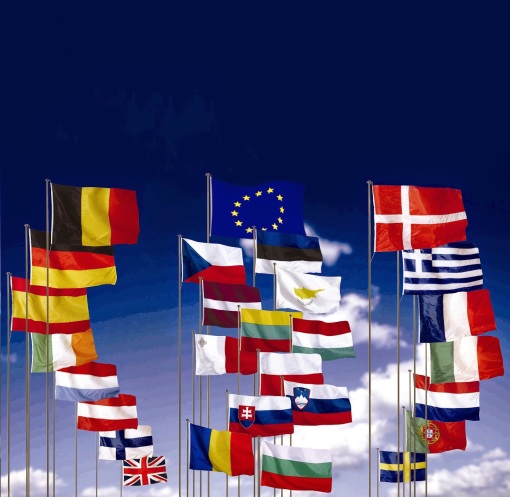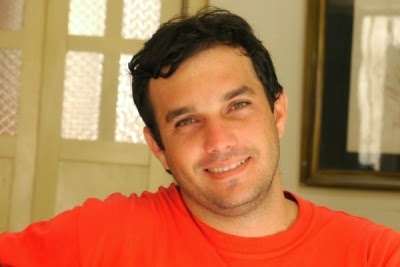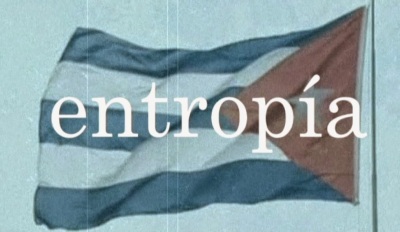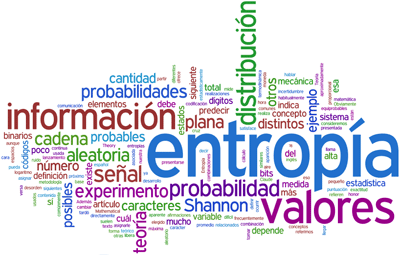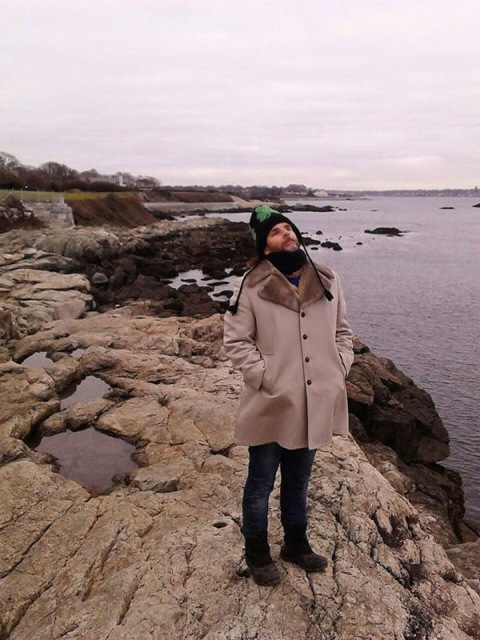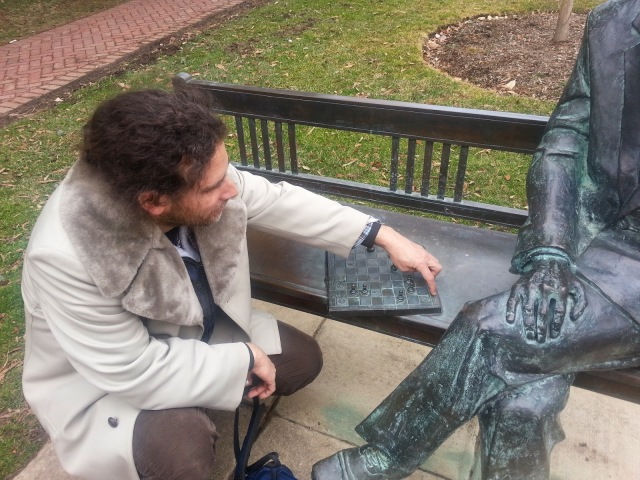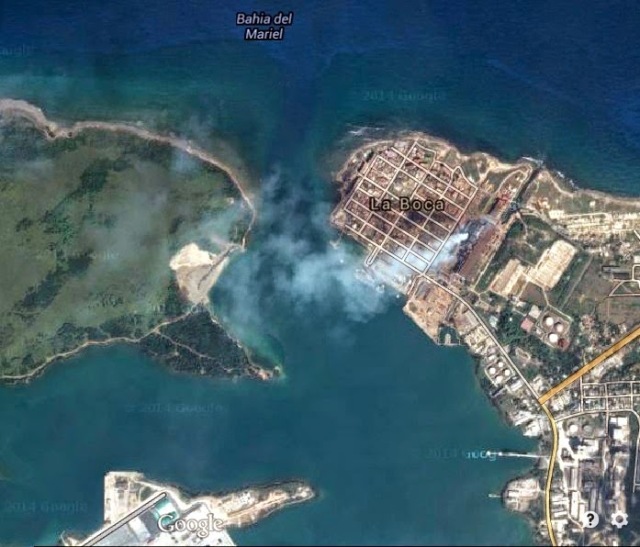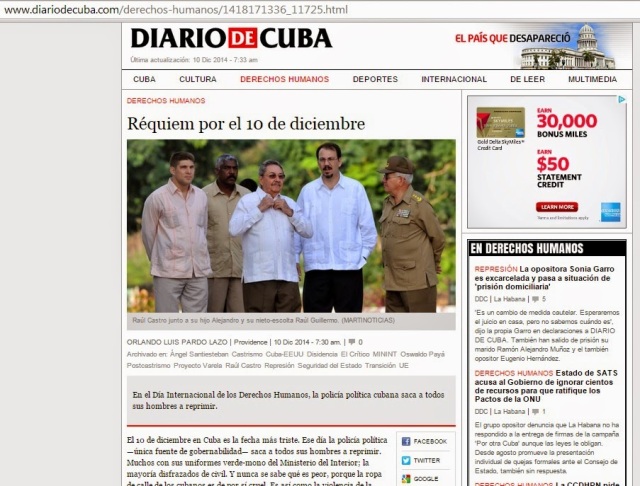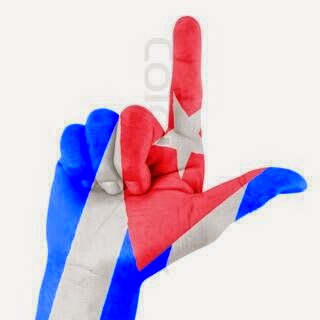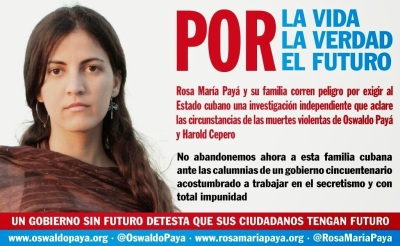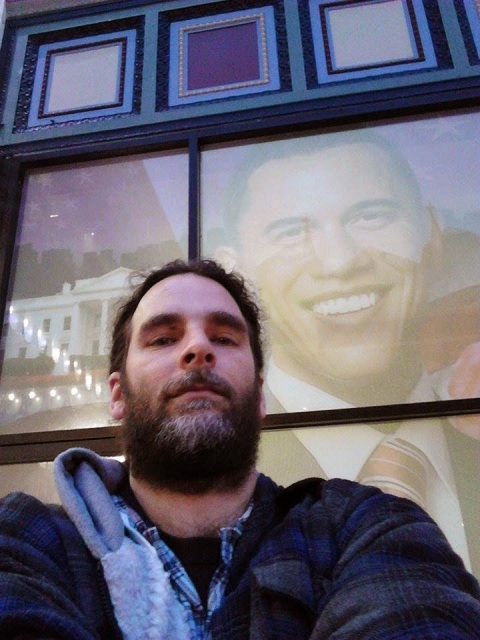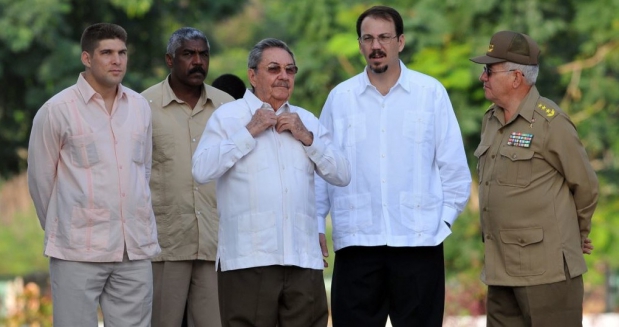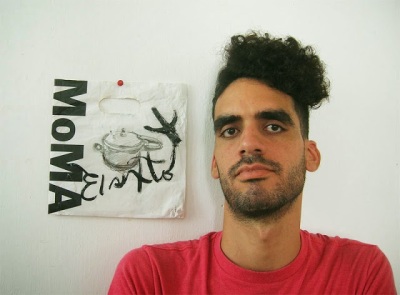
Translator’s Note: On Thursday, Dec. 4, 2014, Orlando Luis Pardo Lazo participated in a panel discussion at Florida International University, in Miami. The program announcement is here.
Since the time of the Iron Curtain and Soviet socialism, the word, “solidarity,” has been one of value in anti-totalitarian use. Within the dictatorial models that communists have historically imposed every time they have taken power, it is impossible to socialize if not through the power of the State/God. Every social bond is regulated as deemed convenient by a regime that, on principle, politicizes all, but in practice depoliticizes society.
There is no political life after the communist parties appropriate power, be it through bullets or ballots. This should be sufficient cause to ponder whether the communist parties — just like the fascists or racists or fundamentalists — deserve the right to play the democratic game. The parties that aspire to be not part, but all, have not demonstrated that they are capable of responding to or respecting the rule of law.
In the face of such false en masse socialization produced by stagnant socialist systems, for the individual to be in solidarity is, then, a way of living in the truth, of involving oneself in the complex social fabric, of reacting against systemic injustices, of not abandoning those displaced by the utopia.
In the face of a monolithic state that hijacks everything to the ideological spectrum, solidarity embodies the rediscovery of the individual, of his inner freedom and of his rights to manifest it, and also the revaluation of his dignity as a person, of his inviolable human condition. Solidarity thus became a secret word, subversive and redeeming.
In Cuba, the prestige of this word — as all language that has been strip-mined by the State — is synonymous with dangerousness. Solidarity, a word derived from “sun,” [“sol” in Spanish] was forced into the counterrevolutionary catacombs. As with the term, “human rights,” solidarity suffered the stigma of clandestinity. I suspect that the word barely arouses sympathies in the average Cuban, who associates it with conspiracies incubated abroad and thus justifies his own humiliation at having to survive with his head bowed.
Peoples learn from their tyrants. In that sense, the Cuban people are cynically wise. At this point in history it is almost unjust to ask them for more. We have sanctioned Castroism with our best spontaneous weapons, even while these same weapons make us a bit more complicit: silence, apathy, repression through inertia, pretending to walk the walk out of an instinct of self-preservation. Against a regime like that of the Castros, to peacefully preach solidarity is also to remember that all gospels end in a via crucis, in the deadly hands of State Security, an entity specifically dedicated to dissolving any trace of solidarity.
Thus the preciousness of the least gesture of our many foreign friends. They observe us, and they work and take risks for Cuba, without the straightjacket of the Revolution’s compensatory myths: the social programs, the high professional level of our countrymen, and the stability gained by sterility of life in our olive-green bubble, which now is mutating from the color of military uniforms to the color of dollars.
Thus the incalculable worth of the courageous acts of Cubans surrounded by Castroism everywhere. Blackmailing Castroism and academic Castroism, or both. Castroism of the bourse and of the beast, or both. Idiotic Castroism and ideological Castroism, or both. Castroism as anti-establishment therapy or sentimental, conciliatory Castroism.
Not to fall into paralyzing pessimism, but there is scarce room for hope in this tragedy, and therefore hope shines brilliantly to the point of virtue. It is this State-sponsored thuggery that makes it so that not one leader of the pro-democracy movements in Cuba has not foretold his or her death, carried out with exceptional viciousness, as in the cases of Laura Pollán and Oswaldo Payá.
The diasporization of our nation starts with our laziness toward fighting injustice somewhere else, as long as it doesn’t concern us personally. In fact, after it does concern us, many times we Cubans prefer to bury our pain and our injury, preventing some friendly hand from “politicizing” their trauma, presuming that doing so would make things worse for us.
This is how we end up being, as a people, Fidelism’s most reliable source of governability, its raw material that will not betray it. Although, as I’ve already said, day by day we also vote in a plebiscite with our feet, which is one of the most constant behaviors that should be weighed in favor of the Revolution: we leave the Island, be it only to turn back; we leave, be it only to construct a new, post-national servitude, in which we know that politics continues being not part of our life, but rather a terrible “all” whose long, barbaric arm could reach our family in whatever corner they might be.
Not one of my columns or photographs since my ostracism in Havana would have had the same impact if not for the solidarity, almost always, of the survivors of socialism. This never implied the most minimal interference with my content. I have not evolved as an accuser: it is possible that I am not even a democrat so much as an author interested in the ultimate. Thus before even knowing it, I was already free to the point of intolerability.
I am not interested in correction, be it mental or corporal, and I am bored by any creation that from its genesis already defines its destiny (and its meaning). I am obsessed by the limits of provocation. My fury at, and autos-da-fé about, Cuba do not remain in the little fossil farm of Fidelism. Rather, they go seeking in the black holes of our democracy that never knew its value apart from the currency of violence, starting with the land destroyed in the wars of independence. These wars consecrated the gallons of spilled blood as a universal value, placed martyrdom over reconciliation, suicide over surrender, hate for our very selves mutated into hate for our Cuban difference: a civic poverty that plays out as tribalism and that, well into the 21st century, still seduces and traps us.
There are many dramatic anecdotes of solidarity with the imaginary free Cuba, such that our desolation is inconsolable as a people living under an apartheid that the world does not recognize. As an emblem, I would like to mention an example exclusive to Cubans which we are careful to cite, for fear (at times average and other times downright miserable) of remaining in anyone’s territory, in or out of Cuba, as if we weren’t already pariahs in perpetuity, in or out of Cuba.
I’m referring to legislated solidarity, to the very rare documents that have sought to wrest liberty from legality. In Cuba, of course, no citizen initiative ever pointed in such a radical fashion to a refounding of the republic as did the Varela Project. This enterprise received from Oswaldo Payá its genius of inspiration and perseverance, but it was also our great public march against the usurpers of the law, a milestone for future generations to know that all measures short of bloodshed were attempted, that there was no humanly possible way of telling the Castros that they are not welcome in our homeland, and that it is they and not some foreign power who have hijacked our sovereignty as a nation.
Other documents of legislated solidarity — that also do not seem to be in fashion amongst a dissident movement that no longer pretends to be an opposition and even less to stop being an opposition and aspire to power through ballots instead of bullets — can be found in North American legislation. Stone me as the Castroites have always stoned me before and after Castro, but in the best of circumstances, it is an act of ignorance not to cite that the so-called Helms-Burton Act is actually named the Cuban Liberty and Democratic Solidarity Act.
Beyond the technicalities of geopolitics, this document establishes the keys to repealing the North American economic blockade. The few sections that discuss normalization of Cuba-US relations — without being complicit with Castroism — are much more respectful of Cubans than the avalanche of editorials from The New York Times, or the campaigns by NGOs that from Miami to Washington DC want to capitalize on the pretend-changes in Cuba, on the auto-transition of power to power and not of law to law, of a tired Castroism to a dynastic, post-Castroism with the literal blood-heirs of the Castros at the helm.
Section 205 of the Act lists in legal language the minimal characteristics needed to jump-start our delayed democracy: Legalize political activity. Liberate political prisoners. Commit to holding free elections. Establish independence among the branches of the State. Legalize workers’ unions. Allow free individual expression and a free press. Respect private property. Protect the rights of citizens on the Island and in Exile.
In that risky context wherein a State capitalism is constructed in Cuba which is no less totalitarian than communism (which is another form of centralized capitalism), perhaps it would be pertinent for Cubans — with a voice empowered by their labor for liberty — to demand of democracies not just one but many laws for liberty — so that the Hierarchs of Havana — who would never sit at a table of reconciliation because they do not recognize their enemies as anything more than potential exterminations to be carried out — will at least feel some effective, legal pressure against their opaque tactics. Thus an unequivocal sign would be given that they do not bear any kind of legitimacy — because 56 years of governing in their belligerent, ill-advised and manipulative manner, are more than enough.
Translated By: Alicia Barraqué Ellison
5 December 2014
